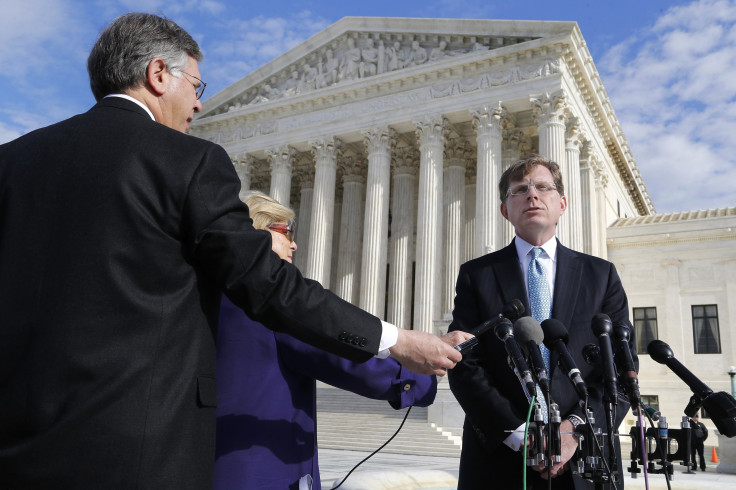Supreme Court May Protect Facebook Rants Under First Amendment

The U.S. Supreme Court Monday heard arguments in the case of a Pennsylvania man convicted of using Facebook to threaten his ex-wife and declare his intention to commit a Columbine-style attack on an elementary school. At issue is whether Anthony Elonis’ online rants were criminal or, as vile as they were, a form of speech protected by the First Amendment.
The outcome of Elonis v. United States could determine the limits of free speech on social media and Internet forums, which are increasingly becoming platforms for vitriolic wars of words on a range of political and social issues.
Expressing concern the lower courts may have overreached in convicting Elonis of communicating a threat across state lines, Justice Ruth Bader Ginsburg said convictions based only on an assumption of the defendant’s intent could set a chilling precedent. “How would the government prove whether this threat in the mind of the threatener was genuine?” Ginsburg asked from the bench.
In questioning the state’s case, Justice Elena Kagan noted, “We typically say that the First Amendment requires a kind of buffer zone to ensure that even stuff that is wrongful maybe is permitted because we don’t want to chill innocent behavior.”
Taking an opposite tack, Justice Samuel Alito said First Amendment protections must be weighed against the state’s obligation to protect individuals from Internet speech that poses “a very grave threat of domestic violence,” a transcript of the session shows.
Chief Justice John Roberts also appeared to be leaning toward favoring victims’ rights over free speech arguments. Roberts scoffed at Elonis’ defense his rants, some of which were written in verse, signaled no more violent intent than, say, a rap song. “All he has to do is say, as I understood your brief, it’s therapeutic, it’s a good thing I could do this, or it’s art,” Roberts said to attorney John Elwood, who is representing Elonis.
On a narrow legal basis, the justices will decide what standards should be applied to online threats. In cases of traditional harassment, say through telephone calls, state courts are split on whether prosecutors must prove defendants subjectively intended their words would be taken as a true threat or that it’s sufficient to show a reasonable person would feel threatened.
On balance, Monday’s arguments indicated the court "is likely to adopt some form of subjective intent,” said Clay Calvert, director of the Marion B. Brechner First Amendment Project, which filed an amicus brief in the case. Calvert said such a threshold would protect everyday rants, which have become common on the Internet. “The question is whether you treat a threat less seriously because it was made on Facebook” as opposed to a direct message or other form of one-to-one communication, Calvert said.
Elonis began his campaign of harassment in 2010 with a Facebook post directed at his ex-wife that in part read, “I’m not going to rest until your body is a mess.” He followed up with posts that said he was bent on mass murder. “I’m checking out and making a name for myself. Enough elementary schools in a 10-mile radius to initiate the most heinous school shooting ever imagined,” one post said.
It’s a hot-button issue in an era when the Internet is increasingly being used as a tool to settle scores and launch harassment campaigns. In the ongoing Gamergate scandal, a group of bloggers launched highly personal attacks against a female game developer and her supporters. “I think that many of the speakers who are online and many of the people who are being prosecuted now are teenagers who are essentially shooting off their mouths or making sort of ill-timed, sarcastic comments which wind up getting them thrown in jail,” Ellwood said.
The Supreme Court did not indicate when it may rule on the case.
© Copyright IBTimes 2024. All rights reserved.












